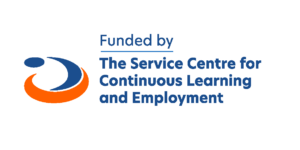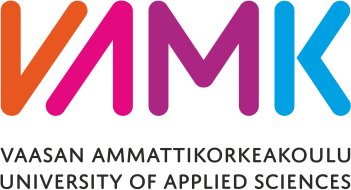Project information:
Official name of the project: Pk-sektorin digi- ja kestävyysharppaus (The SME sector's digital and sustainability leap)
Duration of the project: 30.6.2022 - 31.12.2024
Project coordinator: VAMK
Project partners: Novia
Funding: SECLE
Budget: 87 500 €
RDI platform: Smart City
Language: Finnish
Project description
The project will produce a total of 20 credits of training tailored to the SME sector on digitalisation and green transition. The training will be tailored to provide fast-impact, direct tools, skills and activities to help SMEs develop their corporate responsibility in concrete ways, such as carbon footprint calculations, sustainability reporting and circular economy solutions, as well as their digital skills, such as business intelligence, AI and digital marketing. During the project, students will be taken forward by helping them to create business-specific exercises and tools that can be immediately implemented in their company during the training.
Goals
The main objective of the project is to improve the competitiveness of SMEs and enable their development through digitalisation and the green transition. The project will create training services specifically tailored to the SME sector. In a rapidly changing world, more new skills are needed to maintain competitiveness, in particular in terms of the carbon footprint of businesses and better use of data. SMEs are particularly vulnerable in the supply chain, where companies rarely have no choice but to follow and comply with sustainability targets set by larger companies without their own skills and resources. From a business perspective, this is a major risk and requirements are becoming increasingly stringent. The project aims to mitigate these risks and increase the capacity and knowledge of businesses and the public sector on climate, circular economy and digitalisation.
Results
The goal and concrete outcome of the project is that at least 80 people have received training tailored to the SME sector, which corresponds to 20 credits in the field of digitalization and green transition. They have expertise in the basics of carbon footprint and life cycle calculation and emission reductions in companies. These measures will increase digital skills significantly and while ensuring the competitiveness of SMEs and better utilization of data will also be enabled which opens doors to improved efficiency and new innovations. The goal is also that a large part of those participating in the training can be transferred through these further studies towards engineering degrees and thus further develop the competence of the SME sector. The training offers tools, know-how and actions with which SMEs can concretely develop their corporate responsibility, such as carbon footprint calculations, emission reduction roadmaps and circular economy solutions. During the project, the students create exercises and tools suitable for their own company, which can be immediately put to use by the company already during the training.
The project offers open and free courses for working people with flexible distance learning.
List of courses offered:
Green Transition
- Sustainability and responsibility of SMEs 3 credits
- Basic course including sustainability reporting and the basics of circular economy and carbon neutrality
- Corporate climate work 2 credits
- Basics of emission formation in companies and products and emission reduction
- Business models for circular economy 2 cr
- Exploiting the circular economy in business
- Carbon footprint and life cycle accounting 3 cr
- Basics of carbon footprint and LCA accounting
Digitalisation
- Risk management 1 cr
- Overview of current risks, cases, theories and methods of risk management
- Introduction to artificial intelligence 2 cr
- Artificial intelligence and machine learning
- Fundamentals of Digital Commerce 2 cr
- E-commerce and Web 3.0, digital payment systems, introduction to blockchain, smart contract, DeFi, digital trade marketing, logistics, supply chains and legal issues, robots, drones and digital automation
- Digital marketing 2 cr
- Transition from traditional to digital marketing, digital marketing channels, SEO, measurement and simulation, practical tools for business, e-commerce (how to combine bricks and mortar with e-commerce), communication planning and social media, core messages, target audiences and channels, digital marketing trends, digital marketing in B2B
- Business Intelligence – Leveraging business intelligence
- Analysis and visualisation of large amounts of data using Excel Business Intelligence tools (Power Query, Data Model and Power Pivot) and PowerBI




